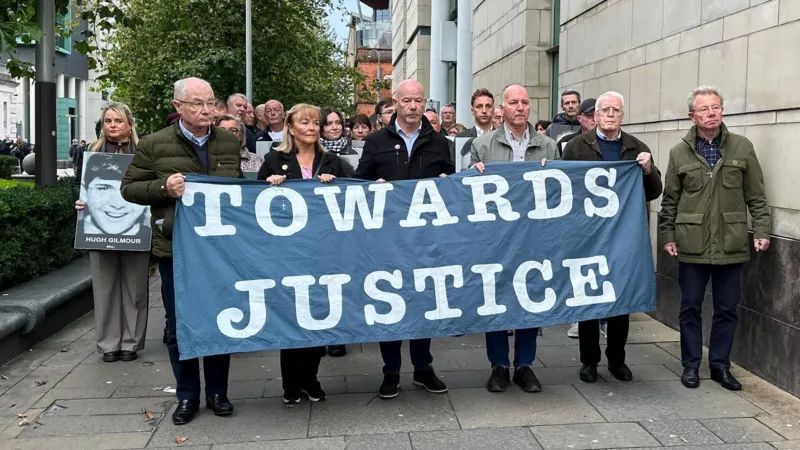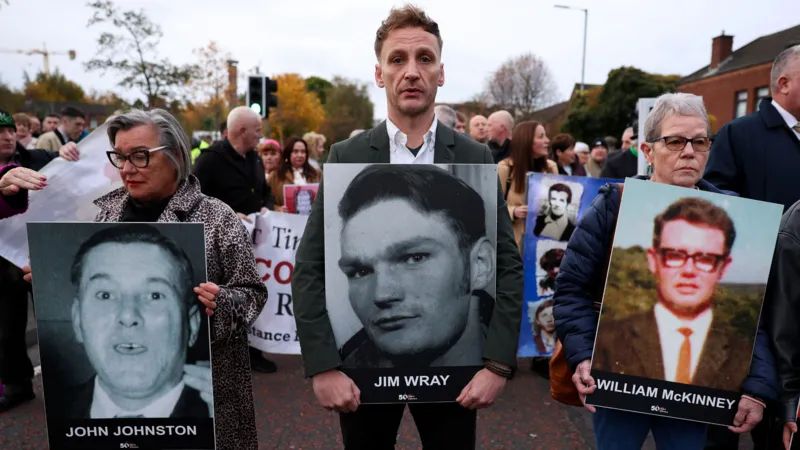After a half-century of investigation and legal proceedings, a former British paratrooper, identified only as “Soldier F,” has been acquitted of murder and attempted murder charges relating to the 1972 Bloody Sunday killings in Londonderry. The verdict, delivered by Judge Patrick Lynch at a non-jury trial in Belfast Crown Court, concludes the last active prosecution related to one of the most defining and violent events of The Troubles.
Soldier F, whose identity remains protected by a court order, stood accused of the murders of James Wray and William McKinney, and five counts of attempted murder. The prosecution stemmed from the events of January 30, 1972, when British paratroopers opened fire on civil rights protesters in the city’s Bogside area, killing 13 people and injuring 15 others.
Insufficient evidence despite condemnation
The core of the judgment hinged on the standard of proof required in a criminal case. Judge Lynch was unwavering in his condemnation of the soldiers’ conduct on the day, stating he was satisfied that members of the Parachute Regiment had “totally lost all sense of military discipline” and fired at unarmed civilians who were fleeing. He pointedly remarked that “Those responsible should hang their heads in shame.”
However, despite this powerful indictment of the regiment’s actions, the judge ruled that the evidence against Soldier F specifically was insufficient for a conviction. The case relied heavily on decades-old hearsay statements from two of the defendant’s comrades, known as “Soldiers G and H.”
Judge Lynch found that the passage of time had severely hampered the capacity of the defense to test the veracity of these statements. Furthermore, he concluded that Soldiers G and H had been “serially untruthful” in previous inquiries.
“To convict, it has to be upon evidence that is convincing and manifestly reliable,” the judge stated. “The evidence presented by the Crown falls well short of this standard and singularly fails to reach the high standard of proof required in a criminal case; that of proof beyond a reasonable doubt.”
Deeply polarised reactions

The verdict was met with deeply emotional and polarized reactions outside the courthouse, underscoring the enduring pain and division caused by the events of Bloody Sunday and the subsequent legacy cases.
Relatives of the deceased, many of whom have campaigned for justice for over 50 years, expressed profound disappointment but reaffirmed their pride in their decades-long struggle. Mickey McKinney, brother of William McKinney, stated that while Soldier F was discharged, it was “one million miles away from being an honorable discharge,” and placed the blame for the failure to prosecute squarely on the British state.
The acquittal was widely welcomed by veterans’ campaigners and unionist political figures. They argued that the ruling brings a necessary close to a protracted legal process they viewed as unfair targeting of former service personnel who operated during a period of conflict. The Northern Ireland Veterans Commissioner expressed hope that the ruling would “bring that long and arduous process to a close.”
Northern Ireland’s First Minister, Michelle O’Neill, called the continued denial of justice for the Bloody Sunday families “deeply disappointing” and “an affront to justice,” highlighting that no soldier or commanding officer has ever been held accountable for the day’s killings.





